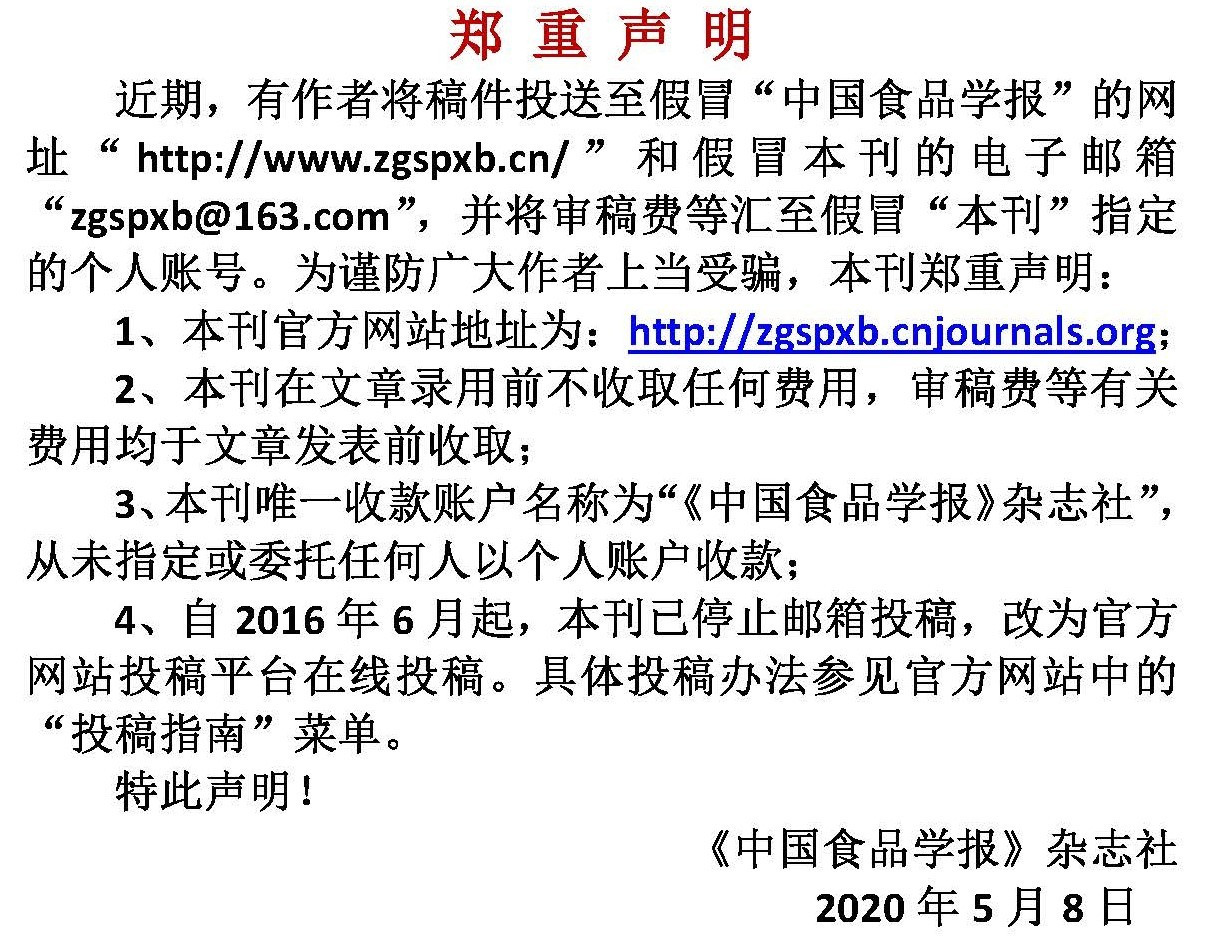(1.浙江大学生物系统工程与食品科学学院 智能食品加工技术与装备国家地方联合工程研究中心馥莉食品研究院 全省食用农产品资源挖掘与高值利用重点实验室浙江省健康食品制造与品质控制国际合作基地 杭州 310058;2.浙江大学中原研究院 郑州 450000;3.浙江大学长三角智慧绿洲创新中心 浙江嘉兴 314102)
国家自然科学基金面上项目(32172334)
(1.College of Biosystems Engineering and Food Science, National-Local Joint Engineering Laboratory of Intelligent Food Technology and Equipment, Fuli Institute of Food Science, Zhejiang Key Laboratory of Agro-food Resources and High-value Utilization, Zhejiang International Scientific and Technological Cooperation Base of Health Food Manufacturing and Quality Control, Zhejiang University, Hangzhou 310058;2.Zhejiang University Zhongyuan Institute, Zhengzhou 450000;3.Innovation Center of Yangtze River Delta, Zhejiang University, Jiaxing 314102, Zhejiang)
引用本文
赵前,叶芷玥,陈健乐,陈士国,叶兴乾,程焕.柑橘品种溯源及其精油智能感官评价技术研究进展[J].中国食品学报,2025,25(2):479-491
复制分享
文章指标
- 点击次数:
- 下载次数:
- HTML阅读次数:
历史
- 收稿日期:2024-02-16
- 最后修改日期:
- 录用日期:
- 在线发布日期: 2025-03-24
- 出版日期:
文章二维码

地址 :北京市海淀区阜成路北三街8号9层 邮政编码 :100048
电话 :010-65223596 65265375 电子邮箱 :chinaspxb@vip.163.com
技术支持:北京勤云科技发展有限公司
